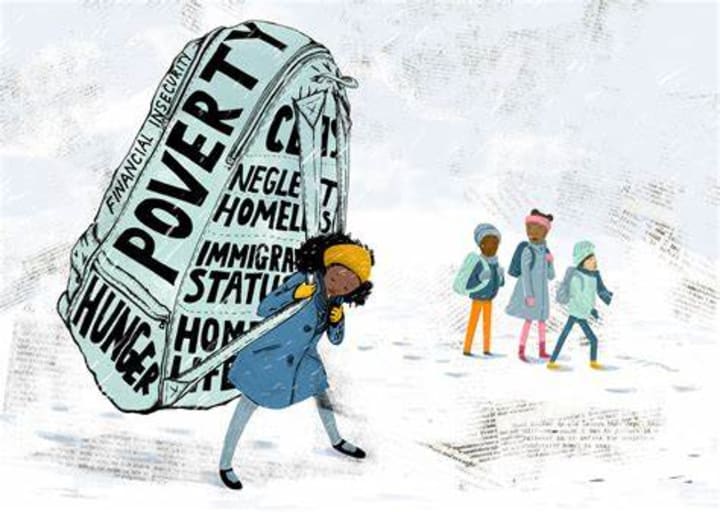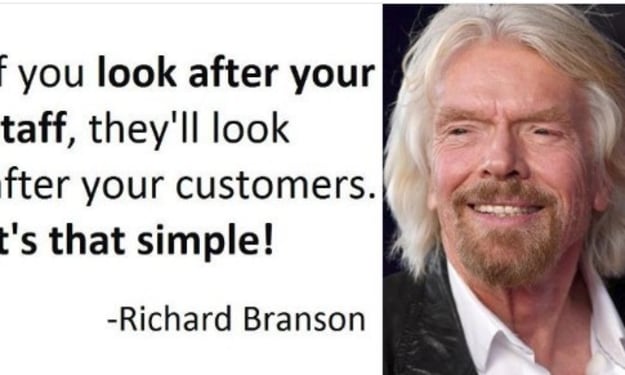Literacy has the potential to change your life and the world.
“Literacy is a bridge from misery to hope.” ― Kofi Annan

According to Kofi Annan, former Secretary-General of the United Nations, "education is a human right with immense power to transform." The fundamentals of freedom, democracy, and long-term human progress lie at its base." He went on to say that literacy is more than just being able to read and write. It is a fundamental skill that empowers individuals and communities to achieve their goals and aspirations. Literacy is a bridge from misery to hope. This essay will look at how literacy may improve your life and the world in four ways: lowering poverty, encouraging development, fostering democracy, and strengthening cultural identity.
For starters, literacy reduces poverty. Poverty is one of humanity's most important problems today. More than 700 million people, according to the World Bank, live on less than $1.90 a day. People in poverty are deprived of fundamental necessities such as food, water, health, education, and dignity. Poverty also restricts their options and makes them vulnerable to exploitation, abuse, and injustice. Literacy can help people break the cycle of poverty by giving them the tools they need to get access to knowledge, opportunities, and resources. Literacy assists people in improving their lives by increasing their income and productivity, as well as participating in the economy. Literacy also assists people in managing their finances, planning for, and dealing with risks and shocks.

In India, for example, literate women were more likely than illiterate women to employ family planning methods, immunise their children, and seek prenatal care. Another study in Kenya found that literate farmers were more likely than illiterate farmers to adopt new agricultural technologies and practices. These examples demonstrate how literacy may improve individuals' and families' health, nutrition, and well-being, as well as their economic potential.
Second, literacy encourages growth. Development is concerned with more than just economic progress; it is also concerned with human well-being, social fairness, and environmental sustainability. Investments in infrastructure, such as roads, dams, clinics, and factories, are required for development, as are investments in human capital, such as education, health, and skills. Literacy is an important complement to these investments because it allows people to use them effectively and efficiently. Literacy can help promote development by fostering invention, communication, and teamwork. Literacy gives people access to fresh information, ideas, and technologies that can spark creativity and problem-solving. Literacy also allows people to communicate across geographies and cultures, exchange information and experiences, and develop networks and collaborations. Literacy also promotes collaboration among individuals, groups, and organisations with similar goals and interests.
In Nepal, for example, literacy programmes were utilised to empower women to organise savings organisations, start small enterprises, and participate in community development initiatives. Another initiative in Tanzania used literacy training to improve local government employees' and civil society organisations' abilities to design, implement, and monitor development projects. These examples show how literacy may allow people to take charge of their own development while also contributing to the growth of their communities and society.
The following message was displayed outside the entrance gate of a South African institution for reflection: "Destroying any nation does not require the use of atomic bombs or long-range missiles." It merely takes decreasing the quality of education and allowing kids to cheat in exams. "As a result, people die under the care of such doctors, structures fall under the care of such engineers, money is lost under the care of such economists and accountants, humanity dies under the care of such religious academics, and justice is lost under the care of such judges." The collapse of education is the collapse of a nation."
Thirdly, literacy promotes democracy. Democracy entails more than just elections; it also entails participation, representation, and accountability. Citizens who are knowledgeable, active, and responsible are essential for democracy. Transparent, responsive, and accountable institutions are also required for democracy. Literacy is a democratisation platform because it allows people to exercise their rights and responsibilities as citizens. Literacy can help strengthen democracy by increasing civic participation, political awareness, and social involvement. Literacy enables people to learn about their rights, responsibilities, and opportunities as citizens. Literacy also allows people to express their thoughts, demands, and concerns, as well as listen to the perspectives and arguments of others. Literacy encourages people to organise, mobilise others, and act for social change.
For example, a programme in Brazil used literacy instruction to educate young people about their civic rights and obligations. Another South African programme employed literacy workshops to teach women about their legal rights and empower them to confront gender-based violence. These examples demonstrate how literacy can improve citizens' participation, representation, and responsibility in democratic processes and institutions.
Finally, literacy helps to strengthen cultural identification. Cultural identity encompasses not only inheritance but also diversity, belonging, and expression. Respect for one's own culture and language, as well as those of others, is required for cultural identity. Cultural expression and dialogue are also required for cultural identity. Literacy promotes cultural identification by allowing people to retain, enjoy, and share their culture and language. Literacy can help promote cultural identity by increasing pride, respect, and understanding. Literacy enables people to learn about their history, traditions, and values, as well as to appreciate their diversity and uniqueness. Literacy also allows people to express themselves through many types of art, literature, and media. Literacy also promotes intercultural communication and exchange by allowing people to learn from and about different cultures and languages. For example, a project in Canada used literacy lessons to revitalise the Inuit people's indigenous languages and cultures. Another project in Mali promoted the use of native languages and scripts in formal and informal settings through literacy instruction. These examples demonstrate how literacy may help individuals and organisations retain, appreciate, and share their culture and language while also enhancing their sense of identity and belonging.
In conclusion, literacy is a bridge from suffering to hope, a tool for daily living, a barrier against poverty, a foundation for progress, a platform for democratisation, and a vehicle for cultural identity promotion. Literacy has the potential to change your life and the world in a variety of ways, including lowering poverty, encouraging development, fostering democracy, and enhancing cultural identity. Literacy is not only a fundamental human right, but it is also essential to human advancement and potential. Let us celebrate literacy today and every day and help make literacy a reality for everyone.
About the Creator
promise monday
As a paediatrician and writer, it is my passion to help individuals apply time-tested biblical principles to their lives of faith, family, relationships, leadership, and finances. I also focus on equitable and healthy childhood living.






Comments
There are no comments for this story
Be the first to respond and start the conversation.